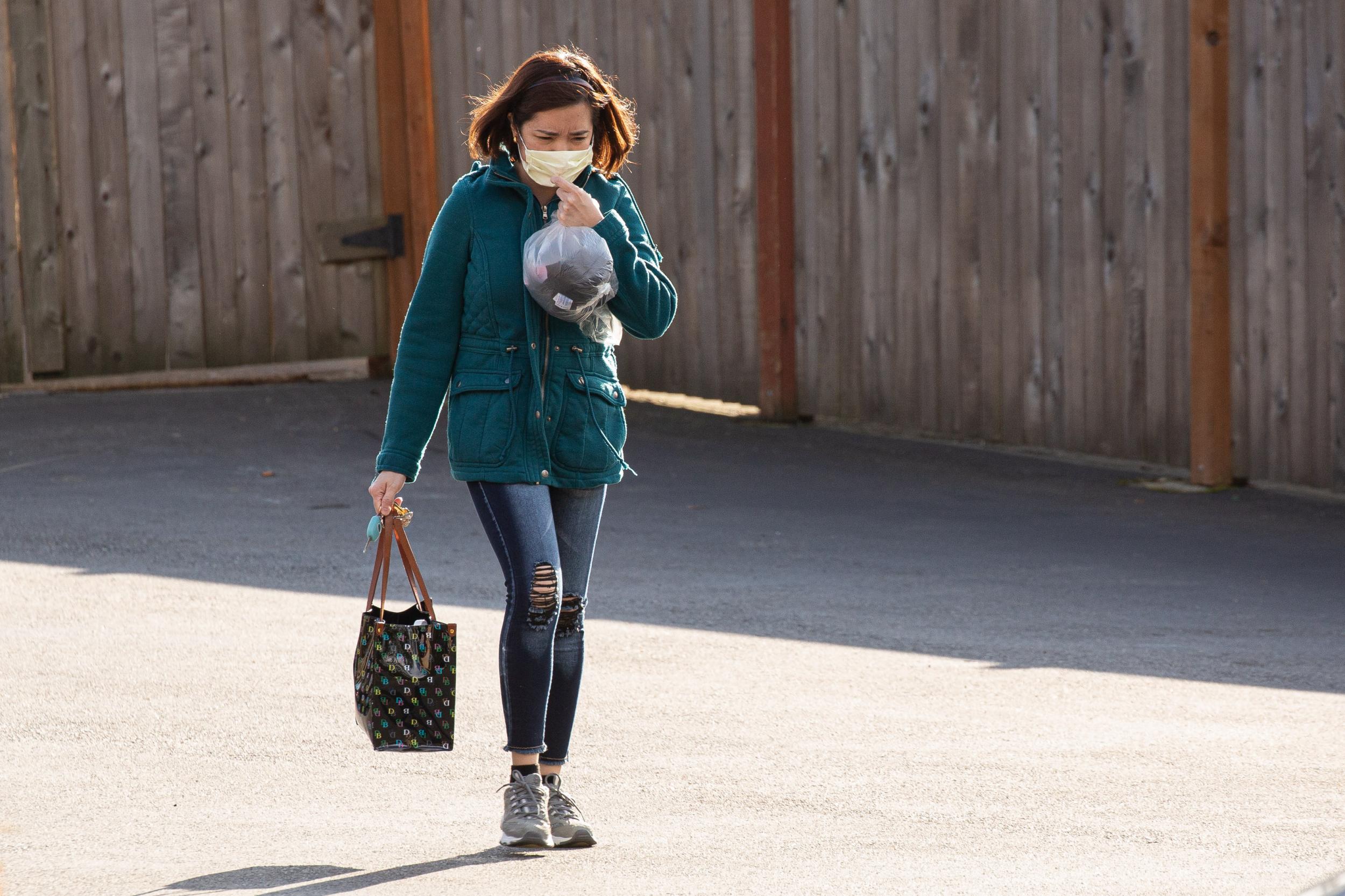Inside America’s coronavirus epicentre: It’s not just the virus growing – but a class divide
It’s hard to report on a crisis that is largely hidden from eye


It started, as these things often do, with breaking news.
The US’s first case of coronavirus had been confirmed in a town 20 miles north of Seattle. Within an hour, I was heading up Interstate 5 to Everett, to talk to health officials and get reactions from residents. (Summation of interviews: Not concerned. Trying to stay calm.)
Six weeks later, the nation’s first fatality was reported in the suburb of Kirkland. This time it was a dash northwest on Interstate 405 to talk to people stocking in a supermarket close to the hospital where the person had died and where the LifeCare Centre nursing home was located. (Summation of interviews: Increasingly concerned. Trying to calm, but anxious.)
Now the death toll has reached 11. More than 100,000 employees of companies such as Amazon, Microsoft, Google and Facebook, among them my wife, have been told to work from home to reduce the spread of the virus.
Residents over the age of 60, or people with underlying health conditions, have also been advised to stay at home. Officials have ordered school districts to close. They have also suggested community groups cancel events involving more than ten people.
Images from stores such a Costco show massive lines. Companies such as Amazon report a spike in orders of canned goods and hand sanitiser. Mike Pence is visiting the state capital.
And yet people in the neighhourhood coffee shop this morning appeared to display little concern. One customer, Lindsay Berger, who was chatting to two other women, said she was stunned by how people were “overreacting”.
“It makes me worry what we’d do if there was a real crisis,” she said. She said friends in New York had sent her images of the Union Square branch of Whole Foods Market with the shelves bare.
“This is contagious, but mild. What if it was something that was contagious but acute?”
With most crises or declared states of emergency, be it the Fukishima earthquake of 2011, or Typhoon Haiyan that tore through the Philippines in 2013, the challenge for reporters is largely one of logistics.
Can you get to the place, can you find a translator. Is there a cell signal, or can you borrow someone’s satellite phone.
A friend who covered the Ebola outbreak in West Africa in 2014 donned hazmat gear for four straight months, as he documented the diseases devastating spread, something for which he received a Pulitzer Prize.
But how do you cover a state of emergency in the gentrified suburbs of Seattle.

If feels banal to report that people at the “boot camp” class at the gym have started to do “air high fives” at the end of each session to avoid hand-to-hand contact. It feels an exercise in indulgence and privilege to report people’s concerns about whether to take a flight on their vacation. It hardly feels like a crisis if people can click a button to restock their food cupboard.
As with so much of today’s world, privilege will likely emerge as a defining faultline as the coronavirus crisis plays out.
If you have health insurance you know you can be treated if you fall ill. If you have a place to live, you can work from home, assuming you have a job. Unless, that is, you work in one of the warehouses filled with canned food, or are a delivery driver, or work in a coffee shop or fast-food restaurant.
But what about the estimated 5,0000 of Seattle’s homeless, their plight worsened by the shortage in affordable housing those thousands of well-rewarded tech employees have helped to create?
How do you get treatment for coronavirus if your home is a tent under the interstate, or next to a new construction? Will you end up in the 84-room EconoLodge motel that officials at King County has bought for $4m in the town of Renton to be used as a a quarantine facility for coronavirus patients.
Or will they put you in an alternative isolation unit in a trailer on public parking lots.
“Many of us can shelter in place, we can go home, we can even work remotely,” said King County Executive Dow Constantine. “That is not an option for people who are unhoused.”
This morning, many people in the area were jolted by a story in the New York Times that suggested in the six weeks between the first outbreak was reported in Everett to the first death, in Kirkland, anywhere between from 150 to 1,500 people may have had, or contracted the disease.
Mike Famulare, a principal research scientist at the Institute for Disease Modelling in Bellevue, said it was most likely 300 to 500.
The most genuinely frightening thing is that people do not know where the virus is or who has been infected. Is it that person sneezing on the bus? What about that person walking their dogs?
For reporters, the challenge is identifying the locus. What is the essence of the story we’re trying to cover?
As health officials step up their testing, many cases will be reported. We are almost certainly likely to see more deaths. At some point, those numbers will start to reduce, but that may be some time away.
A heartening comment came from a member of staff in that coffee shop this morning when I expressed some surprise to find it open. She said it had been “business as usual” but that “everybody is making an effort to be super friendly”.
Was that the employees or the customers, I asked. She replied: “Both.”
Join our commenting forum
Join thought-provoking conversations, follow other Independent readers and see their replies
Comments
Bookmark popover
Removed from bookmarks